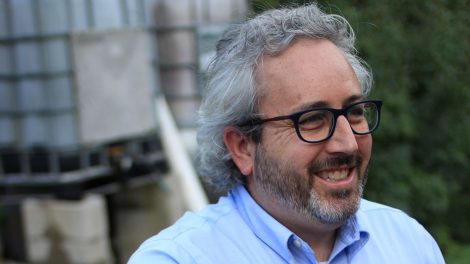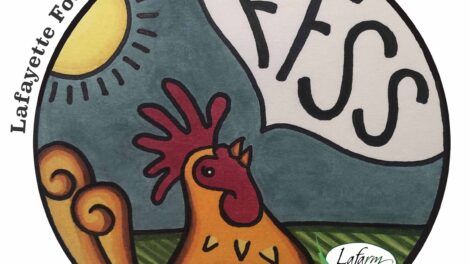Prof. Benjamin Cohen discusses his contributions to Acquired Tastes: Stories about the Origins of Modern Food and his interest in food history, policies, and reform
By Bryan Hay
Benjamin Cohen has shared his passion about food history, policies, reform, and technology with students, peers, and a growing audience hungry to learn more about what they eat.
In Acquired Tastes: Stories about the Origins of Modern Food (MIT Press, 2021), Cohen, associate professor of engineering studies and environmental studies, added his voice in a compelling look at the social and industrial forces behind our modern way of eating. His is part of a storyline in a collection of 14 essays in a revealing exploration of pivotal but often overlooked moments in food history between 1870 and 1930, a collection that shows the origins of processed, packaged, globalized, standardized, and marketed foods of our modern age.

Prof. Benjamin Cohen contributed to helped edit Acquired Tastes: Stories about the Origins of Modern Food
In “Gilded Sugar and Corn Syrup’s Long Con,” the sixth essay in the book, Cohen draws from his critically acclaimed book Pure Adulteration: Cheating on Nature in the Age of Manufactured Food (University of Chicago Press, 2019) to present the many competing factions, perceptions, and legal fights behind society’s entrenched distrust of corn syrup. Consumer suspicions began as early as the 1870s with crooked patent holders, chemical confusion surrounding sucrose, glucose, dextrose, grape sugar, and corn sugar, and a sense that the resource intensive industry was deceiving the customer.
Other essays explore how imperial exploitation prevented Filipino-American cuisine from thriving in the United States and detail how trade policies, class distinctions, and arguments over white and brown bread came together to give shape to modern white bread. Also covered is the rise of pilsner, the first globally marketed beer, which appealed to 19th-century consumer thirsts for hygiene and purity.
Cohen edited the compilation with Michael S. Kideckel, a history teacher at Princeton Day School, and Anna Zeide, associate professor of history and director of Food Studies at Virginia Tech, who also contributed essays.
He recently sat down to talk about the book and what drives his interest in food and agriculture.


